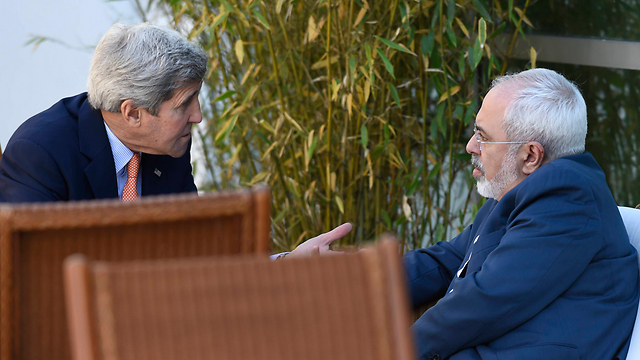
Israel should join NPT in return for Mideast nuclear free zone
Op-ed: Iran would be more receptive to curtailing its nuclear program under a regional agreement to end nuclear arms than the current deal being formulated by world powers.
In the early 1970s, the government of Golda Meir reached a tacit agreement with the Nixon administration about Israel’s nuclear policy of “don’t ask, don’t tell”. The champion of this agreement was Nixon’s national security advisor, Henry Kissinger.
Based on this policy, Israel would neither deny nor confirm the possession of nuclear weapons. Israel did not join the Non-Proliferation Treaty (NPT), and thus its policy was not illegal. Israel at the time was under existential threat and saw this policy as an effective deterrent.
The Middle East and world politics, however, have gone through tremendous political, economic and social changes in the past four decades that not only render Israel’s ambiguous nuclear policy obsolete, but turned the whole project of Israel’s nuclear program into a liability.

First, Israel is no longer under an existential threat: as reflected in the 2002 Arab Peace Initiative, the Arab states are willing to normalize relations with Israel in exchange for full withdrawal from the territories captured in 1967. And second, instead of being a deterrent against the Arab states and Iran, its alleged nuclear arsenal may be stimulating not only a nuclear arms race in the region, but also political tension and conventional wars as Israel seeks to preserve its monopoly as the region's only nuclear power.
Israel struck twice at Arab states in order to deprive regional states from possessing nuclear power: in 1981 against Iraq and in 2007 against Syria. More recently it has said it would not rule out a strike against Iran for the same objective.
It is true that the powers' negotiations with Iran could beget a bad agreement or none at all. The outcome for the regional players, however, would be the same: Iran would continue to march slowly but safely towards manufacturing a nuclear bomb.
Under these circumstances, Israel would have no choice but to attack Iran’s nuclear facilities, in order to maintain its monopoly over nuclear power, prevent a potential regional nuclear war, and deter other states from following in Iran’s footsteps.
Further, Israel wants the United States to apply a double standard: Israel would remain an exception to the rule and privileged over the Arab-Muslim states. In this regard, the question looms large: can the US continue to turn a blind eye to Israel’s nuclear weapons (according to foreign media reports) and impose sanctions on every other Middle Eastern state which dares follow in Israel’s footsteps?
A few weeks ago, the American assistant secretary of state for international security and non-proliferation, Thomas Countryman, visited Israel in order to examine the likelihood of creating a nuclear weapons free zone (NWFZ) in the Middle East.
In my opinion, Iran would be more willing to abandon its nuclear aspirations under a regional NWFZ agreement than under the current conditions of preserving its monopoly. In short, Israel should take part in the P5+1 negotiations in which it would declare its willingness to strip itself of nuclear weapons and join the NPT in return for signing a Middle East Nuclear Free Zone.
Yakub Halabi is an Arab-citizen of Israel, assistant professor of international relations and fellow at the Azrieli Institute of Israel Studies, Concordia University in Montreal, Canada.
This article originally appeared on i24News.










